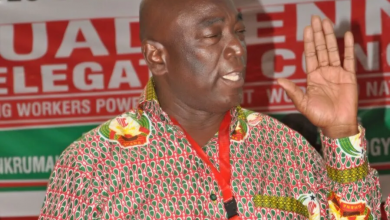TIN REQUIREMENT BEFORE FILLING CASES UNCONSTITUTIONAL – SUPREME COURT
The Supreme Court has declared as unconstitutional provisions in the Revenue Administration act restricting people without a Tax Identification Number (TIN) from filing cases in court.
According to the unanimous decision of the court, the provision of the Act is inconsistent with the 1992 Constitution and has the potential to restrain the citizenry including juveniles from accessing the courts of the country.
The Supreme Court in its judgement read by Justice Sophia Ophelia Adjeibea Adinyira concluded that Paragraph 2(8), 2(9) and 1(9) of the first schedule of the Revenue Administration Act, 2016 (Act 915), were at odds with the 1992 Constitution and denied citizens accessing the courts of the country.
The case was instituted by The Centre for Juvenile Delinquency in 2018 challenging the constitutionality of the law in the Revenue Administration Act, 2016 (Act 915).
The Act prohibited a person, including juveniles, from filing a case in court unless that person quotes the Taxpayer TIN provided by the Ghana Revenue Authority (GRA).
The case was instituted by The Centre for Juvenile Delinquency in 2018 challenging the constitutionality of the law in the Revenue Administration Act, 2016 (Act 915).
The Act prohibited a person, including juveniles, from filing a case in court unless that person quotes the Taxpayer TIN provided by the Ghana Revenue Authority (GRA).
The Centre for Juvenile Delinquency in 2018 challenging the constitutionality of the law in the Revenue Administration Act, 2016 (Act 915).
The centre sought nine reliefs including a declaration that the law was inconsistent with and in contravention of Articles 2(1), 33(1), 48(2), 130(1), 132, 133(1), 135, 137(1), 140, 273(1), 273(5) and 280 of the 1992 Constitution which guarantee a person’s right of access to court.
It also sought a declaration that the act’s barring persons from conducting any official business with the court unless that person quotes the TIN is “inconsistent with and in contravention of Articles 2(1), 33(1), 130(1), 132, 133(1), 135, 137(1) and 140 of the 1992 Constitution which guarantee the right of a person, including a juvenile, having access to court, and is consequently null, void and unenforceable.”
The centre’s final relief was an “order of perpetual injunction restraining the Defendants, their agents or servants or assigns or judicial office under the pretext of acting under Paragraph 2(8),




